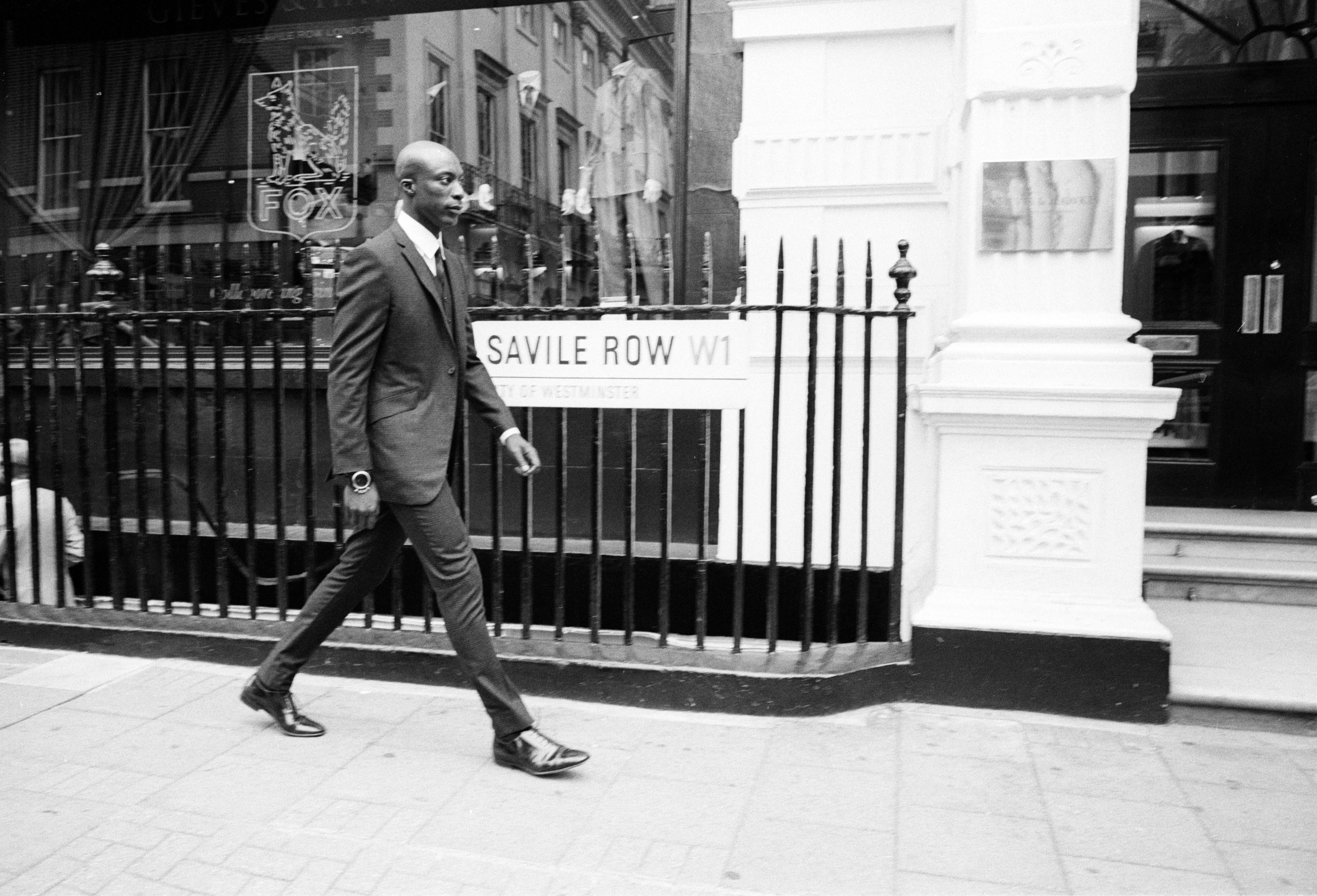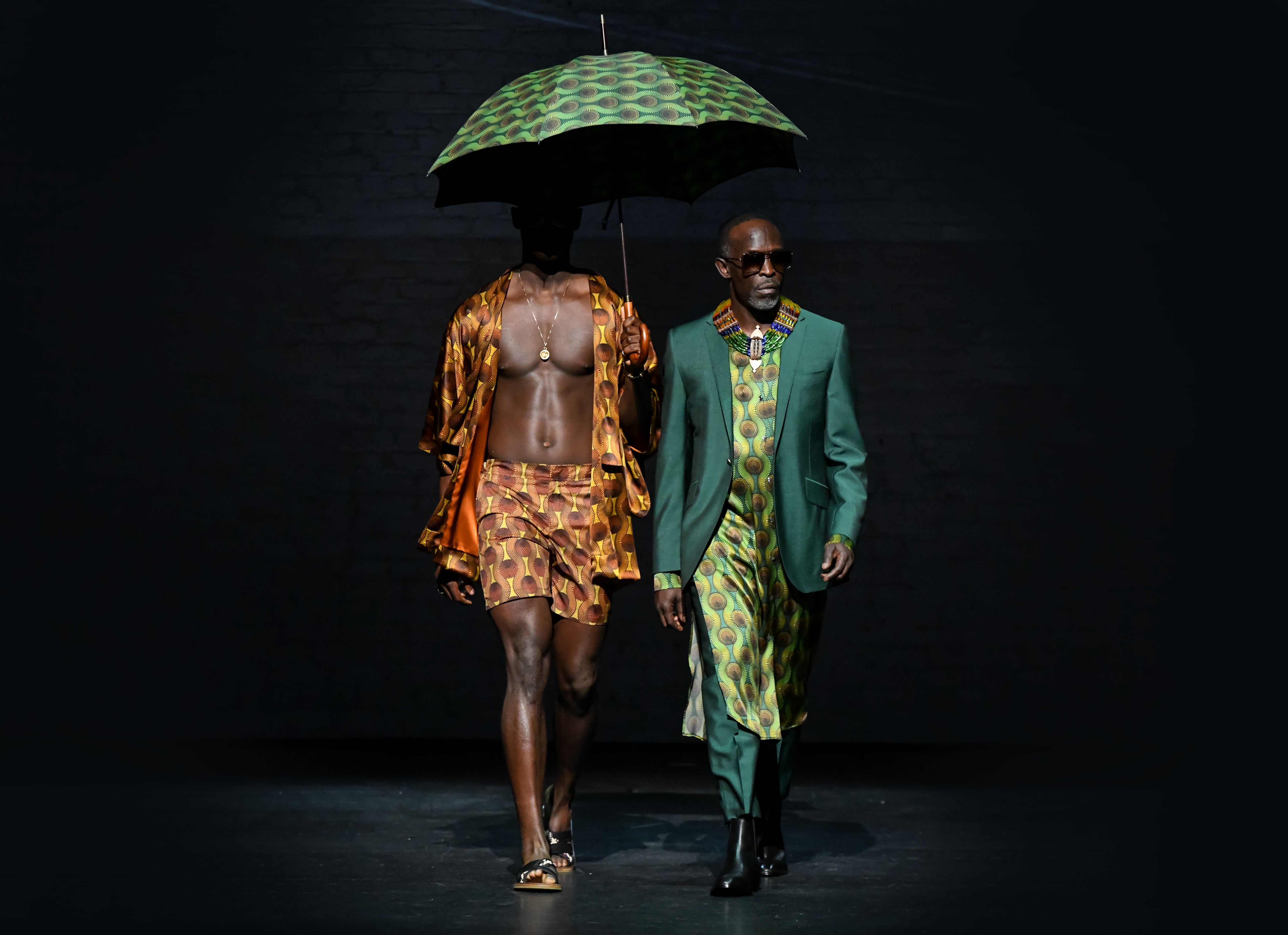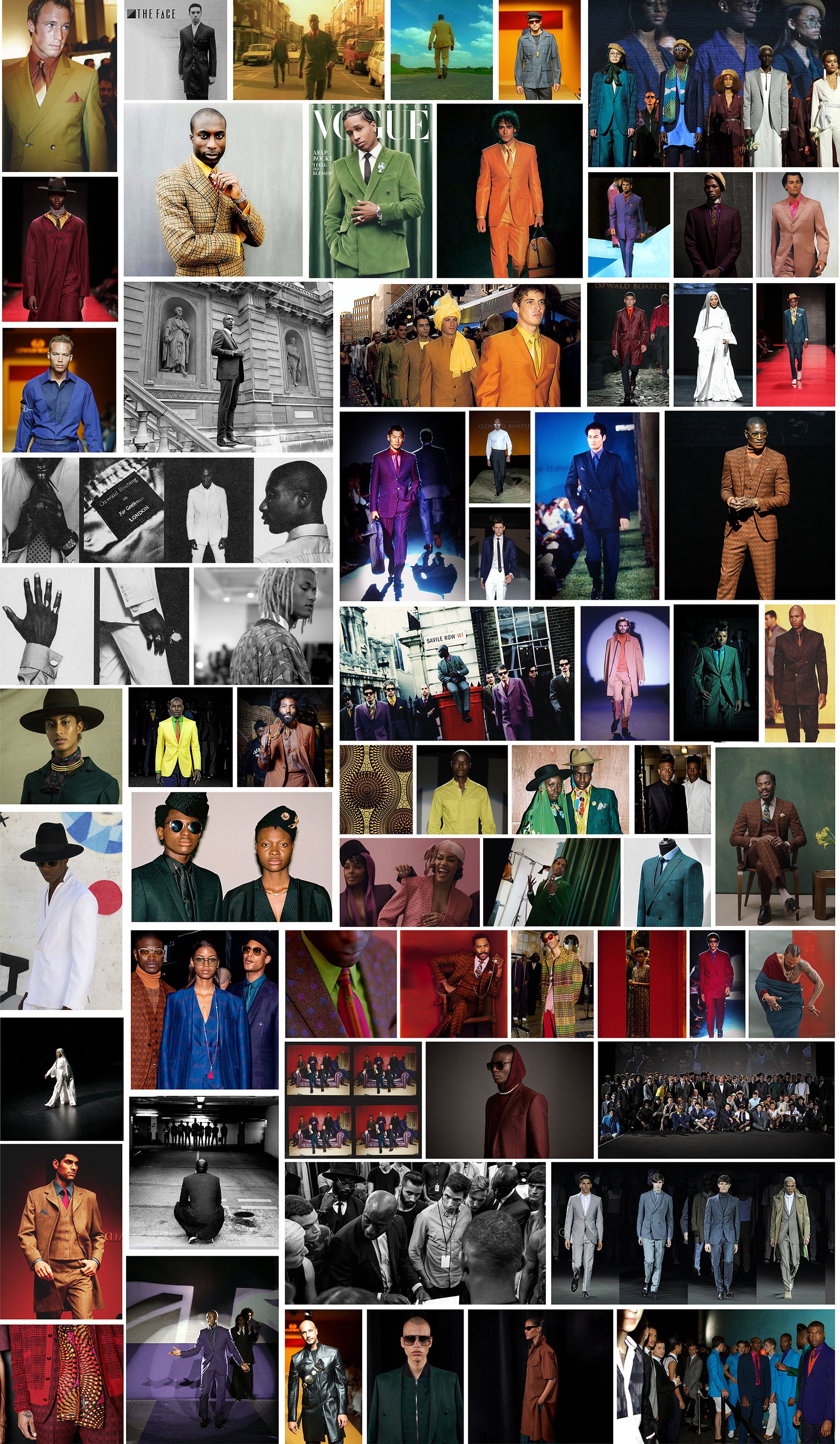
On 5 May 2025, the world will watch as the Met Gala unfolds under a theme that resonates deeply with everything Ozwald Boateng has stood for:Superfine: Tailoring Black Style. This moment is not just a celebration of fashion. It is a recognition of a journey that has spanned over four decades—a journey led by a designer who transformed the very language of menswear on the global stage.

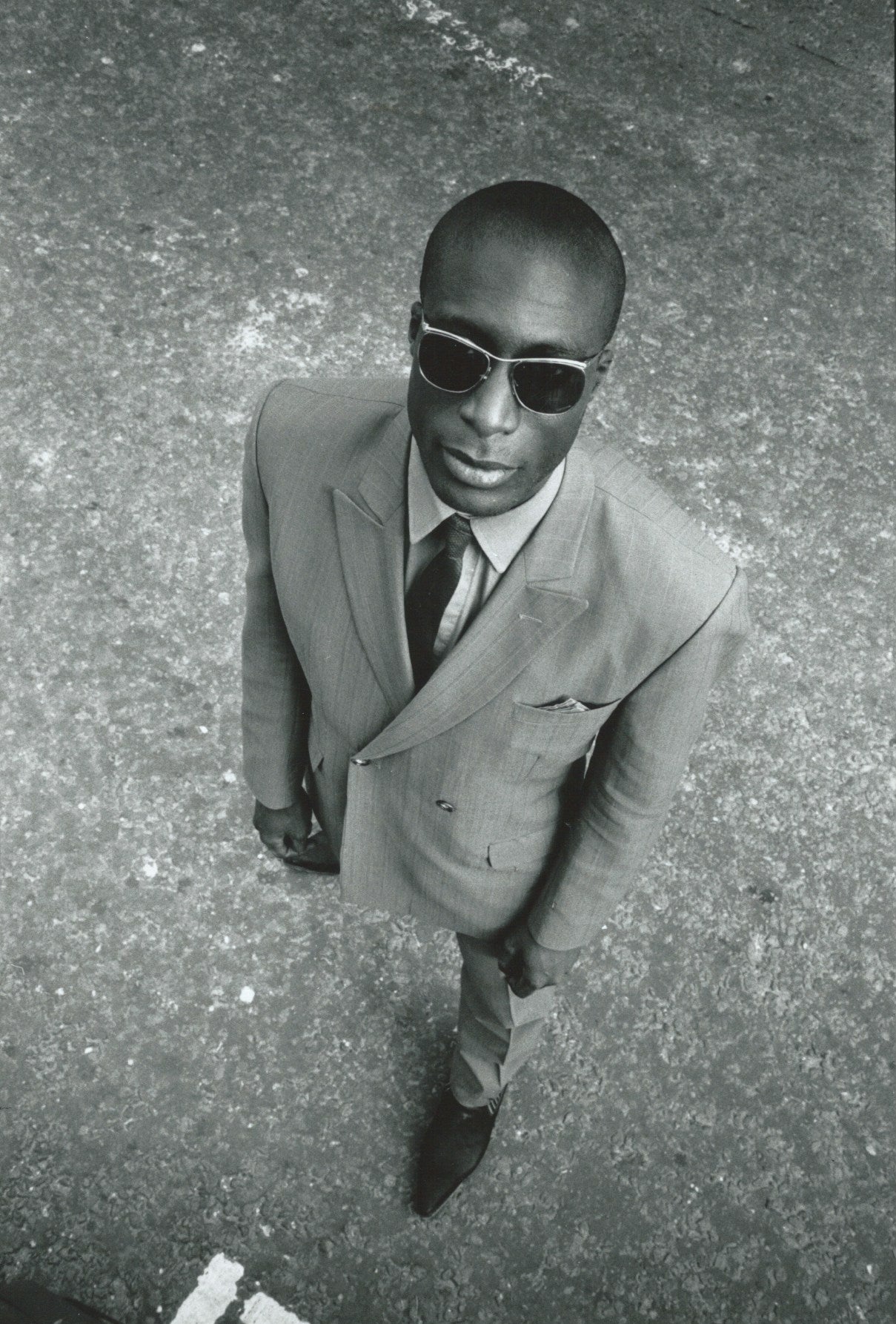
A VISION THAT REDEFINED TAILORING
Since the early 1980s, Ozwald Boateng has championed the idea that tailoring is more than a craft. It is identity. It is power. It is heritage.
From the streets of London to the ateliers of Savile Row, Boateng brought a fresh perspective to classic British tailoring. He introduced bold colours, intricate linings, and a modern silhouette that spoke to a new generation. For the first time, the suit became a symbol not only of style but also of personal and cultural pride.
In 1995, he became the first Black tailor to open a store on Savile Row, breaking boundaries and setting a new standard for inclusion and creativity in British fashion. His work attracted a global clientele—from Hollywood icons to heads of state—each drawn to the idea that a suit could tell a story far beyond fabric and thread.

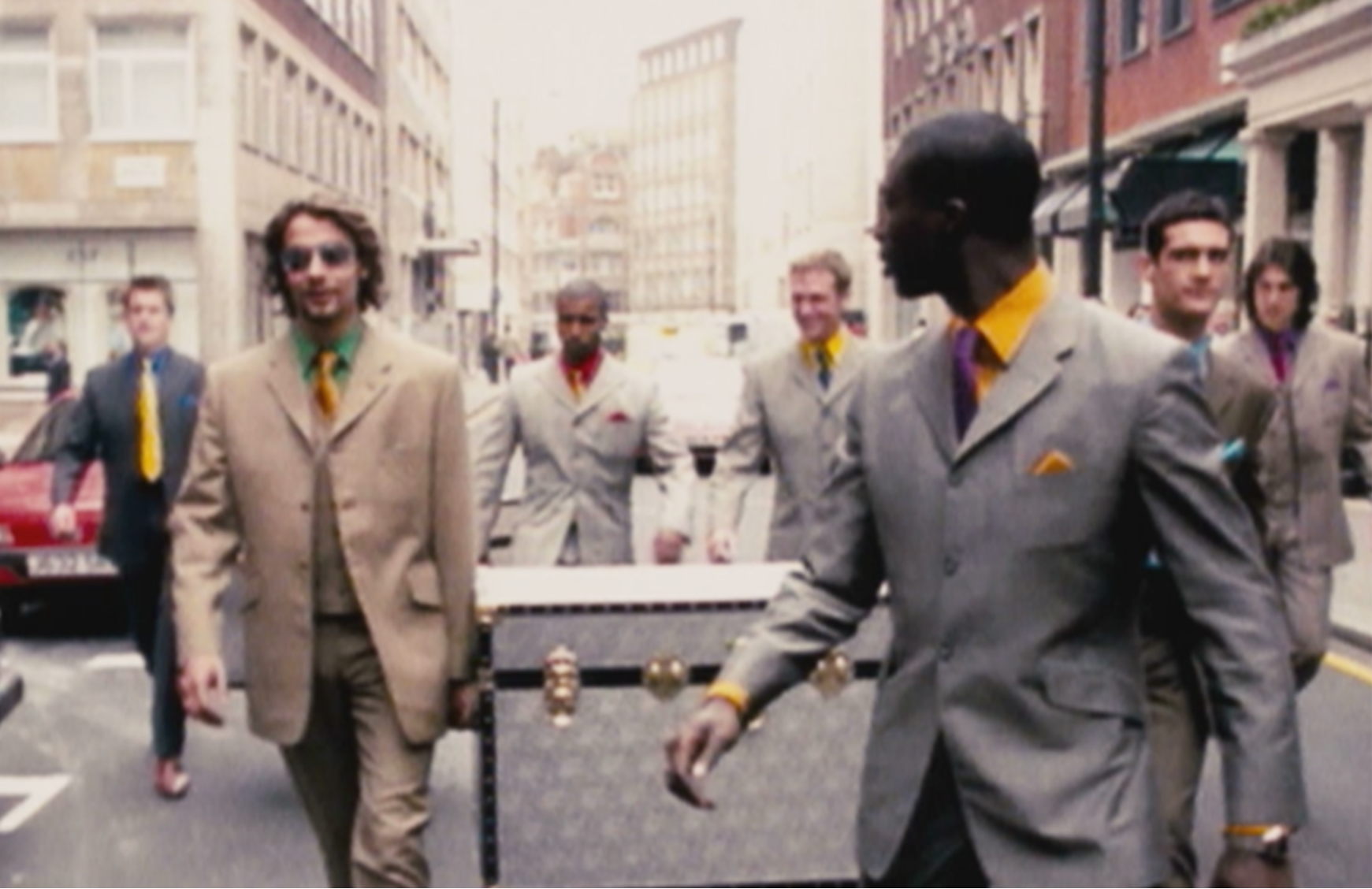
BREAKING BOUNDARIES: THE PARIS CATWALK
In 1994, Boateng presented his first catwalk show in Paris—the first time a British tailor had ever staged a runway show at Paris Fashion Week.
This was more than a fashion debut. It was a declaration that tailoring belonged not only in private fittings but also on the global stage of high fashion.
Boateng redefined what it meant to be a tailor. No longer confined to tradition-bound boutiques, his creations became part of the cultural conversation alongside couture and avant-garde design.
By bringing tailoring to the catwalk, he challenged the old norms and introduced an emotional and artistic dimension to menswear. His shows were not just about clothes. They were about confidence, identity, and spirit.


TRANSCENDING TRADITIONAL NORMS
Boateng’s work has never been about following rules. His creative process focuses on the person inside the suit. He crafts garments that do more than fit the body. They elevate the wearer’s presence. They give men—and later, women—the ability to feel bold, empowered, and proud of who they are.
His signature approach blends:

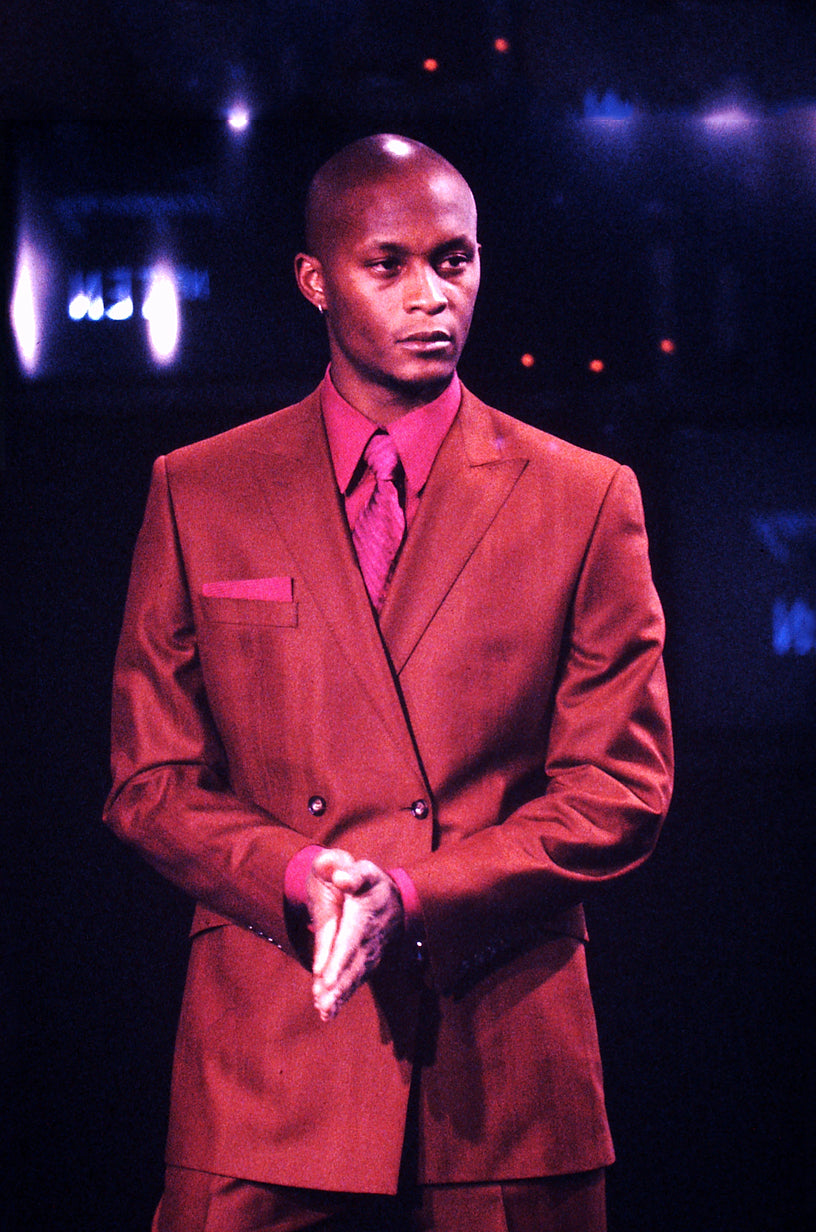
Sharp, modern cuts that flatter and empower.
Model is wearing a classic Ozwald Boateng Double breasted suit from 2000
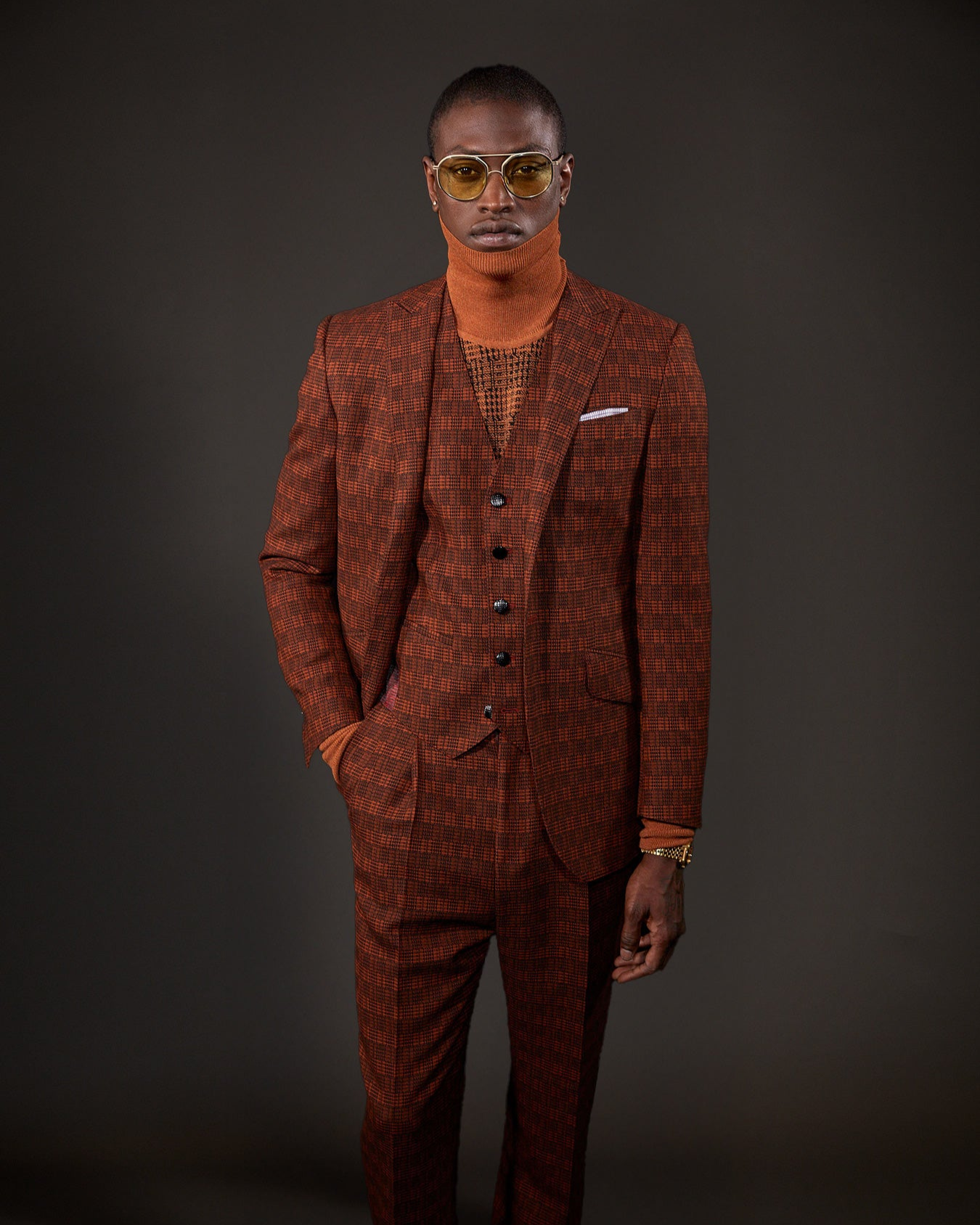
Rich colours and textures that celebrate heritage.
Model is wearing a three-piece Ozwald Boateng signature Kenté print suit, 2019
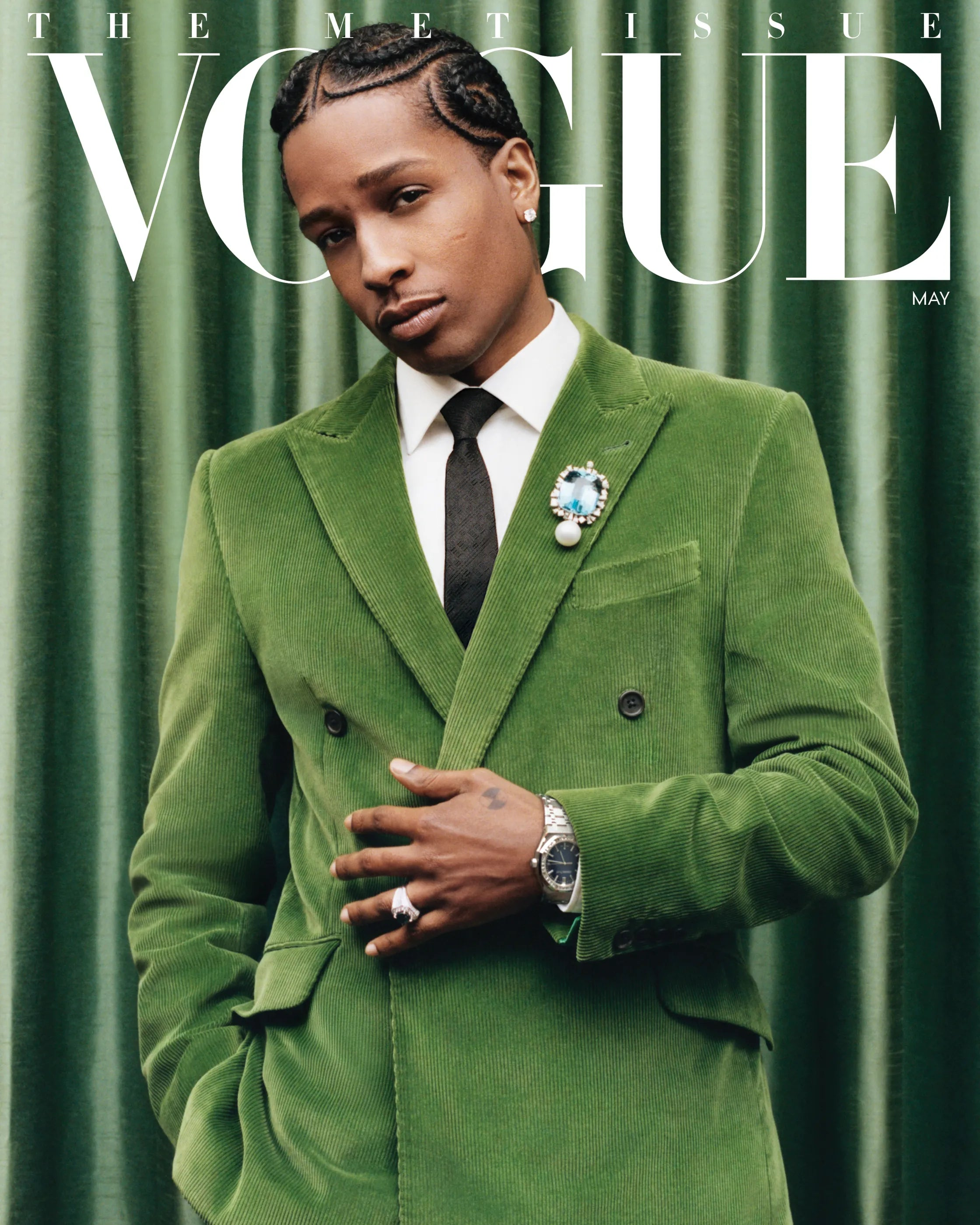
Details that speak to individuality and courage.
For Boateng, tailoring is not a uniform. It is a canvas for personal expression. His clients do not simply wear his clothes. They carry their identity with honour.
ASAP Rocky wears double-breasted corduroy Ozwald Boateng seat on the cover of the net addition of Vogue Magazine, 2025

Boateng’s influence extends beyond tailoring. He has always seen fashion as a medium for cultural storytelling. His groundbreaking 2019 show at Harlem’s Apollo Theater was a vivid expression of this belief. Merging African aesthetics with British craftsmanship, the collection celebrated diasporic identity and the power of style as resistance and affirmation.
The parallels with this year’s Met Gala theme are undeniable. Superfine highlights the artistry and resilience of Black dandyism. It explores how, for centuries, Black men have used tailored fashion to assert dignity, creativity, and independence. This has been the foundation of Ozwald Boateng’s work from the beginning.



A LEGACY RECOGNISED
As Ozwald Boateng attends the Met Gala this year, he does so not just as a guest but as a pioneer whose vision helped shape the narrative now taking centre stage. The influence of his brand is woven into the very fabric of this year’s exhibition and dress code. For Boateng, this is more than a personal milestone. It is a celebration of a movement. A recognition that tailoring can empower, inspire, and redefine identity across generations and cultures.


As we mark 40 years of Ozwald Boateng’s journey, the message is clear: the future of fashion is not just about trends. It is about continuing to tell stories that matter. It is about using design to honour heritage, break new ground, and inspire what comes next.


